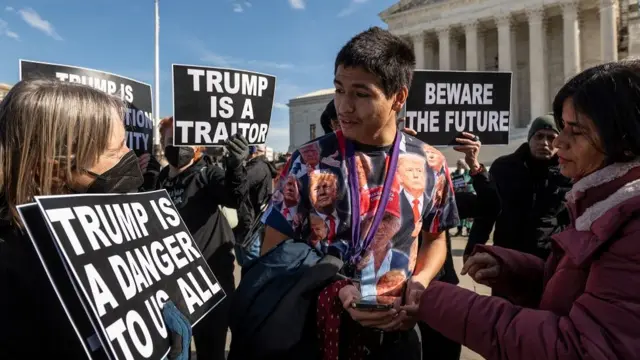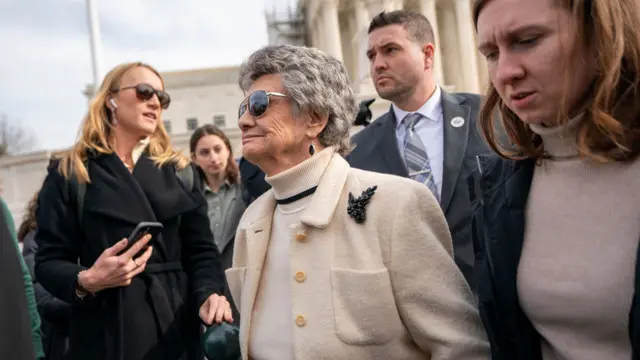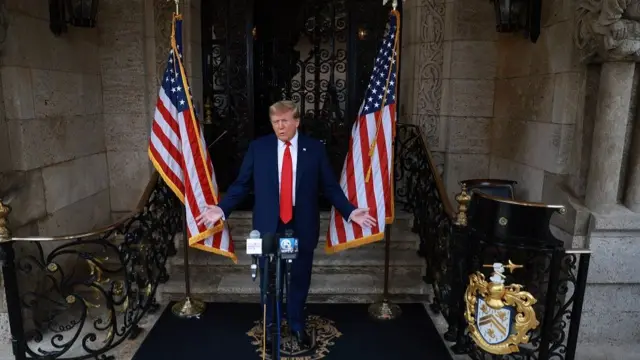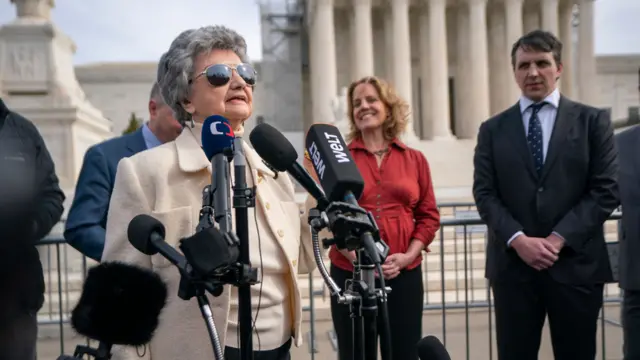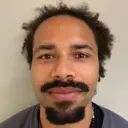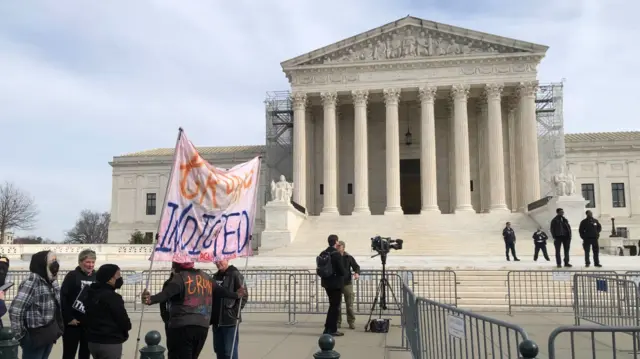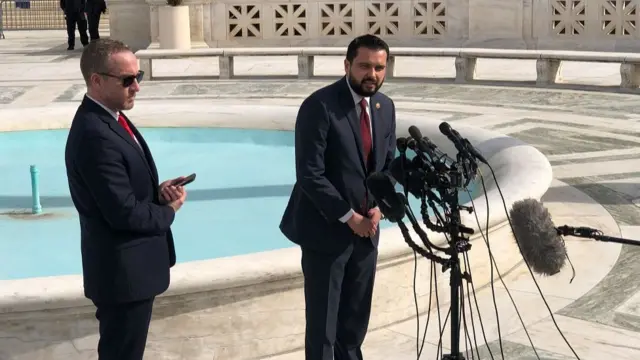Trump claims case against him is 'election interference'published at 21:11 GMT 8 February 2024
Trump reacts to US Supreme Court hearing on Colorado ballot
Speaking to reporters outside of his Florida residence, Mar-a-Lago, Donald Trump has just called the Supreme Court hearing "a very beautiful process”, adding that he hopes democracy will continue.
He questioned whether 6 January was an insurrection - and said his words at the time were "very heart-warming statements" and telling people to go home.
He went on to claim the Democratic Party was weaponising politics, and brought up the various legal cases against him.
"It’s election interference,” Trump claims.
He told the press gaggle that he hopes his argument in court today was "well received”.
The former president also brought up his polling performance, and went on to attack President Joe Biden for what Trump says are "open borders" and crime.
"They loved four years of us," Trump said.

